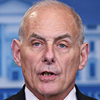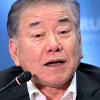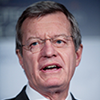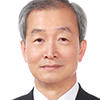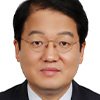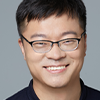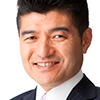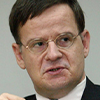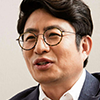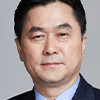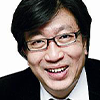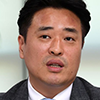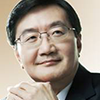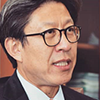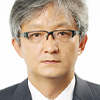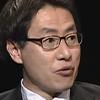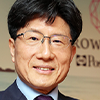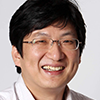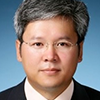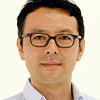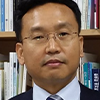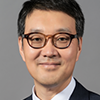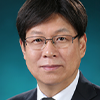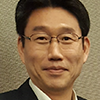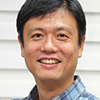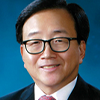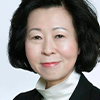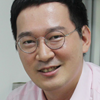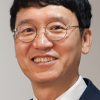Dynasty Hall, Hotel Shilla, Seoul
Schedule
Program on June 12
| Time | Program | Speaker |
|---|---|---|
| 10:0010:30 | Opening Ceremony |
Opening Address Kwak Jea-sun Chairman of EDAILY Congratulatory Message Lee Nak-yeon Prime Minister of South Korea |
| 10:3011:00 | Keynote Speech The Korean Peninsula Scenario : The U.S. Strategy and Trump's Intention |
|
| 11:0012:00 | Conversation A Formula for realizing the future of the Korean Peninsula |
|
| 12:0013:30 | Lunch | |
| 13:3014:30 | Session 1 Republic of Korea, Today and Tomorrow |
|
| 14:3015:50 | Session 2 A Round Table with The U.S., China, Japan, and Russia: How to Survive a Roller Coaster Ride |
|
| 15:5016:00 | Break | |
| 16:0017:00 | Forum in Forum Peace and Prosperity, Strained Coexistence |
|
Special Session
| Time & Venue | Content | Attendees |
|---|---|---|
| 15:0016:00 Emerald Room (Yeong Bin Gwan 2F) |
AMCHAM Special Coffee Meeting with General John Kelly (R) |
CEOs, Members AMCHAM Korea |
Program on June 13
| Time | Program | Speaker |
|---|---|---|
| 10:0011:10 | Keynote Speech & Conversation From G20 to G2 to G0: What the Next Decade Holds |
|
| 11:1012:20 | Session 3 A New Cold War at the Crossroad & Corporate Strategies |
|
| 12:2013:20 | Lunch | |
| 13:2014:20 | Forum in Forum Prepare for a New Round |
|
| 14:2015:40 | Session 4 Inter-Korean Economic Cooperation, Between Dreams and Reality |
|
| 15:4016:00 | Break | |
| 16:0017:20 | Session 5 Redrawing the Korean Economic Map |
|
1020 Anniversary Special Program
| Program | Content | Venue | ||
|---|---|---|---|---|
| 1020 Special Lecture <My Today, and Passion> |
Thu, June 13 | 13:00 ~ 14:00 |
|
Emerald Room Yeong Bin Gwan |
| 14:00 ~ 15:00 |
|
|||
| 15:00 ~ 16:00 |
|
|||
| 1020 Anniversary Goods Exhibition X Collaboration with Artist Park Jin Young |
Collaboration with Artist Park Jin Young 1020 commemorative <Edaily Special Edition Goods>! 1) Special Edition Goods Package offered through lottery for registrants 2) Donation through on-site sales ※ On the spot, a gallery of works by Park Jin Young is also organized. |
Foyer of Dynasty Hall | ||
| 1020? 10th Anniversary of Forum, 20th Anniversary of Edaily |
We are with you for 10th Anniversary of the Daily Strategic Forum and the 20th anniversary of the Edaily's founding in 2020. ※ On the spot, we will give you a big present through the 1020 anniversary event. |
Foyer of Dynasty Hall | ||
Sessions
-
Keynote Speech
The Korean Peninsula Scenario: The U.S. Strategy and Trump's Intention
The Korean Peninsula is shrouded in mist once again. A series of North Korea's long-range missile tests over the past few years has caused a lot of tension over it. When North Korea tested its intercontinental ballistic missile (ICBM) capable of reaching the US mainland, the situation turned so grim that nobody could foresee what might happen next. However, the inter-Korean summit followed by a North Korea-United States summit last year, the tense atmosphere on the Korean Peninsula began to thaw. Following a full-on tug-of-war between North Korea and the United States over the denuclearization of the North and the easing of economic sanctions against the country, the second summit between the two countries took place at last in Hanoi, Vietnam in April. The summit, however, yielded unexpected results. Contrary to people’s prediction that the summit would further improve the relationship between the two countries, with the collapse of the summit, the Korean Peninsula fell into zero-visibility status.
Will the mist cast over the Korean peninsula ever clear? Now, we are going to hear about the U.S.’s strategy for and U.S. President Donald Trump’s view on the Korean Peninsula situation from former White House Chief of Staff John F. Kelly, who, having served as Secretary of Homeland Security and Chief of Staff for the Trump administration, was known to be the closest advisor to President Donald Trump. What strategy will be implemented by the U.S., a country that is most influential in establishing a peace regime on the Korean Peninsula? What is the real intention behind the U.S.’s campaign to lead North Korea to denuclearization with economic sanctions as a means of pressure? Is President Trump 's true intention simply to protect the US mainland, or is there more? -
Conversation
A Formula for Realizing the Future of the Korean Peninsula
What will the Korean Peninsula look like in the future, which is shrouded with mist and scarcely visible? What kind of future should South Korea aim to build once the mist has lifted? When the denuclearization of North Korea has been achieved, will a permanent peace regime be established here? If so, how will that permanent peace regime be established and what shape will it take?
No one can accurately predict the future of the Korean Peninsula. However, if a permanent peace regime were to be established, the two nations’ possible future would be either reunification or the establishment of a peace regime on the condition that North Korea’s own regime remains intact. We need to draft a concrete scenario like that and design a corresponding future for our countries.
Former White House Chief of Staff John Kelly will be meeting with Moon Chung-in, special adviser to the President of South Korea, who exerts influence on the South Korean government’s policy-making for foreign affairs and national security. In this talk, the two will engage themselves in unabated discussions on subjects including what path South Korea should take following the denuclearization of North Korea and what conditions are necessary for establishing a permanent peace regime on the Korean Peninsula. -
Session 1
Republic of Korea, Today and Tomorrow
What is the role of South Korea in leading the Korean Peninsula to denuclearization? The South Korean government volunteered to act as a "mediator" to bridge the difference in views between North Korea and the United States. And that yielded some interesting results. It created a peaceful atmosphere on the Korean peninsula which had been on the verge of war, achieving a dramatic reversal. It also helped the first-ever North Korea-United States summit to be held.
However, South Korea’s mediator role did not last long. With the collapse of the second North Korea-United States summit, the denuclearization process of the Korean screeched to a sudden halt. Together with it, South Korea's global presence also became unstable. North Korea scolds South Korea, saying “Stop acting like a nosy mediator already!” while the United States continues pursuing a grand bargain. The Good Enough deal, which aims for the denuclearization of North Korea and phased lifting of American sanctions and was proposed by the South Korean government, has also been rejected. This is why many experts express skepticism regarding the effectiveness of South Korea’s mediator role.
Denuclearization of the Korean Peninsula is a task that must be accomplished because it is the most basic prerequisite for establishing a peace regime on the Korean Peninsula. It’s time we considered long and hard what South Korea can do and should do in order to achieve a successful denuclearization of the Korean Peninsula. We are going to assess the current state of South Korea and discuss what course of action we should take to realize that outcome. -
Session 2
A Round Table with The U.S., China, Japan, and Russia: How to Survive a Roller Coaster Ride
The Korean Peninsula has been walking a tightrope surrounded by four powerful countries, the United States, China, Japan, and Russia. These four great powers have been trying to maneuver the Korean Peninsula into going in a direction that only serves to protect their own ideologies and systems. The aim is to take out as many competitors from the Korean Peninsula as possible, whether they gain dominance or not.
The battle of wits between the four great powers is ongoing. It appeared the situation on the Korean Peninsula had been improving since last year, driven by the improving relationships between South Korea and North Korea and between North Korea and the United States, but with the falling through of the planned Vietnam declaration by NK and the US, it became impossible to even forecast what direction things would go. In the meantime, having been excluded from the discussions on a Korean Peninsula peace regime, China, Japan, and Russia are becoming increasingly discontent. While being careful not to make gestures that might provoke each other, they, in fact, are quite adamant about not backing down in regard to the Korean Peninsula situation.
Do the U.S., China, Japan, and Russia really want peace on the peninsula? If they want peace, how do they want the situation to be resolved? They each still have different purposes. Let's get a glimpse of what they each really have in mind through an open-ended conference between the U.S., China, Japan, and Russia. It might give us a clue to the solution to the formula towards achieving peace on the Korean Peninsula in the worst diplomatic environment. -
Forum in Forum
Peace and Prosperity, Strained Coexistence
“Peace represents the economy itself.” This was the statement by President Moon himself, announced last year through his speech for the National Liberation Day of Korea. It was a blueprint for peace and economic prosperity that can coexist together.
It reflects a hope that implementing a system of peace on the Korean peninsula following North Korea's denuclearization will bring about economic prosperity as was the case with the Kaesong Industrial Zone or the Mt. Kumgang Tour business of the past. It is projected that North-South economic cooperation will actively ramp up, centered around railways and highways, while also seeing the further pursuit of tourism projects like the Mt. Kumgang Tour business. Connecting North and South by railway is expected to secure a new trade route by extending it through Russia to the European continent. North Korea's abundant mineral deposits, more plentiful than South, paints a rosy picture as a potential catalyst for the economic prosperity of the entire Korean peninsula.
There is no opposing voice, regardless of political disposition in the conservative and liberal political parties, that establishing a system of peace on the Korean peninsula through denuclearization of North is crucial. But there are conflicting views on whether this peace regime can bring economic prosperity to the peninsula. That is because the economy moves according to ‘profit’.
Once the system is in place, if the North-South economic cooperation model does not meet North Korea's expectations, peace and prosperity cannot coexist. We are here to discuss whether the current government is being overly optimistic and what we can realistically stand to gain, together with critics, North Korea security experts, and experts with public service backgrounds.
-
Keynote Speech
From G20 to G2 to G0: What the Next Decade Holds
Even just 10 years ago, the international community was maintaining order to a reasonable degree, with the "G20" system firmly established. Now, ten years having passed since, the world is a very different place. Based on the formidable domestic market it has built by taking advantage of the world’s largest population, China, having outstripped European countries and Japan, has reorganized the global economic order into a G2 system where it stands shoulder to shoulder with the U.S. The recent protectionist trend that the Trump administration of the United States kicked off under the banner of "America First" has intensified trade disputes between America and China, signaling yet another change on the global economy map.
The United States, which took upon itself the role of the world's policeman and has been leading the world’s economy and politics, was unable to go so far as to control China's rapid growth. The influence of the U.S., which has been exerted in a self-righteous manner since the beginning of the Trump administration, is not what it used to be. The same is true of China. Despite being on equal footing with the U.S. with the global economic market under its dominance, China is not enough to replace the United States when it comes to politics and military affairs. For this reason, some forecast that the international community will soon transform into a leaderless G0 system.
As a result, South Korea, heavily influenced by both the United States and China, is going through a lot of difficulties. As its export-oriented economic structure needs to be maintained for a while, South Korea has no choice but to pay close attention to changes arising on the soon-to-be-redrawn global economic map. The wave of change that has been raging tumultuously over the last decade may even get accelerated further. Let's find out what preparations South Korea needs to make and what strategy it should employ to usher in a better decade. -
Session 3
A New Cold War at the Crossroad & Corporate Strategies
We have seen a holy war between Saudi Arabia and Iran, and the far-right movements that have hit Europe, and the protectionism headed by the United States. This complex state of affairs in the world can be collectively referred to as ‘the new Cold War.’ While the Cold War, sustained by two polar opposites of the U.S. and the Soviet Union, was an era of political confrontation, the new Cold War is unfolding in a much more complex way, involving ethnicity, religion, economy, and so on.
One consequence of the new Cold War is the trade war between the United States and China triggered by the strengthening of protectionism, and by watching it, South Korean companies are growing increasingly worrisome. Because the U.S. and China are South Korea’s major trading partners which account for one-third of Korea's exports. This trade war, in particular, is construed as the U.S.’s strategic action to curb China's rapid growth. It has been pointed out that South Korea’s traditional management strategy of walking a tightrope between the United States and China is no longer effective. This is because the two countries are expected to pressure South Korean into picking one side between them. However, as the game of strength between the two has already expanded into a battle for hegemony, there are also some voices advocating that South Korea must take the side of either the United States and China. The reason being that there is no longer the ideal compromise plan of “The United States for security, China for economy.”
What would be the best choice for South Korean companies? Would it be the United States, the largest consumer market, or China, the largest export market? Or could it be Southeast Asia, which is getting a lot of attention from South Korea thanks to the country’s New Southern Policy? We will take some take to contemplate ways to survive in the desperate circumstance of the new Cold War. -
Forum in Forum
Prepare for a New Round
Last year, South Korea joined the so-called 3050 club, a group of countries with a population larger than $50 million and income more than $30,000, the 7th nation in the world to do so. Foreign tourists that visited the country reached a highest-ever 3.03 million in the first quarter. In the eyes of foreigners, it is a wonder itself to witness South Korea's marvelous economic growth and rapid democratization in just a few decades. This is not an achievement that is duplicated in other countries that suffered colonial rules and later found independence in the 20th century.
But after a brief moment of joy in joining the 3050 club, South Korea now stands at a crossroads that leads to the status of a truly advanced nation. External conditions are cloudy at best as America and China's fight over hegemony and the stalemate in North-South relations surround us. Visiting foreigners are wowed by the dynamic and hardworking nature of the Korean people, but they also agree that something else is needed for the future. From economic growth to democratization and Hallyu, here's a look into South Korean society and its culture at large through the eyes of foreign media. Members of the foreign press from Japan, China, the US, and Europe speak frankly about what South Korea is as a nation, and what changes are needed to recreate the Miracle on the Han River for a second time. -
Session 4
Inter-Korean Economic Cooperation, Between Dreams and Reality
For South Korean companies, entering the North Korean market has always been a long, tough journey. It is because the United Nations’ economic sanctions against North Korea are still strong, as well as because companies are blatantly exposed to political and diplomatic shocks due to the nature of the North Korean circumstances. However, interest in investing in North Korea has yet to subside. Stocks related to economic cooperation between South Korea and North Korea have been fluctuating whenever the communication efforts between the countries, and between North Korea and the United States being made, and South Korean companies form task forces in preparation for their forays into the North Korean market. Some SMEs have established joint ventures with Russian and Chinese companies to pursue their North Korean projects.
Rose-colored analysis results are coming in spades that the moment a new market called North Korea opens its doors, it will turn out to be a blue ocean with a yield of 1000%. And it is not that only companies engaged in the field of infrastructure, including construction, telecommunications, and logistics, can enjoy the opportunity to enter the North Korean market. It is expected that the overall investment environment in North Korea will improve, and with that, related financial products will also become high in demand. New opportunities to make money by investing in real estate in North Korea and border areas will also arise. There is also an expectation that once the geopolitical risks are resolved, with a decreased credit default risk for South Korea, financing for North Korean ventures will become easier.
So then, have South Korean companies all fully readied themselves, so that they can enter the North Korean market as soon as the sanctions are lifted? There is also no small number of South Korea companies that are reluctant to enter the North Korean market regardless of the existence of sanctions, due to the possibility of the relationship between the two Koreas going sour again. There is also concern that South Korean companies may not survive in the North Korean market due to their unfamiliarity with North Korea’s systems and society. It is possible that the North Korean market will become a playground for Russian, Chinese and Vietnamese companies only. We are going to tell you everything about investing in the new market, North Korea. -
Session 5
Redrawing the Korean Peninsula's Economic Map
The global economic order, where free trade has been the mainstream, is being destabilized amid the strengthening of protectionism that began with the inauguration of US President Donald Trump. While most countries are refusing protectionism, the stance of the American economic powerhouse remains unchanged.
South Korea in particular is being swayed by the trade war between the United States and China, which has been disrupting global market leaders in recent years. This is because the global economy has been wobbling unexpectedly since the US-China trade war began. Even if the US-China trade war came to an end, it might bring about a crisis in the Korean economy for reasons such as the relocation of production bases in the two countries and an increase in tariff rates.
It is also urgent for South Korea to improve relations with Japan, a country that is so close yet so far. South Korea is concerned that the deteriorated diplomatic relations between the two countries, largely attributable to the comfort women issue, might rub off onto the economic domain as well. For South Korea, which has an export-oriented economic structure, dealing with changes in its external environment is its never-ending focus of attention. In these circumstances, where the global economic landscape is being reorganized, we are going to redraw the map for South Korea's economic development.
Speakers
-
 John KellyFormer White House Chief of Staff*5th United States Secretary of Homeland Security
Former White House Chief of Staff John F. Kelly is a true-blue military officer who has spent most of his life in the U.S. military. In 1976, when he was twenty-six, he joined the U.S. Marines as an officer and subsequently served as a commanding and advising instructor. After serving in various positions, he became a special advisor to the Supreme Commander of Allied Command Operations. In 2001, he returned to the United States and got promoted to brigadier, and he then served two years in the Iraq War. Afterward, he served as assistant chief of staff for the military, aiding former Secretary of Defense Robert Gates and Secretary of Defense Leon Panetta from March 2011 to October 2012, and he then became promoted to four-star general, helming the US Southern Command until January 2016. Of particular note is that during that period, he worked closely with leading figures from law enforcement agencies such as the Federal Bureau of Investigation (FBI) and the Drug Enforcement Administration (DEA) to tackle issues threatening the U.S.’s national security, including human trafficking, and drug trafficking from Central and South America to the United States conducted by transnational criminal organizations. After retiring from the military, he became the first Secretary of Homeland Security of the Trump administration in 2017. Six months later, in July of the same year, he was appointed as White House Chief of Staff. Following his inauguration as Chief of Staff, he came to the fore with moves such as purging en masse a host of White House staff members who had been in a power struggle with him. However, his relations with President Trump became troubled as he frequently disagreed with the President over issues such as the U.S.-Mexico border fence, and he eventually stepped down as Chief of Staff in 2018. After his retirement, he said of his time aiding President Trump, “It was a bone-crushing hard job,” and he asked his successor to tell the president what he needs to hear during his office.
John KellyFormer White House Chief of Staff*5th United States Secretary of Homeland Security
Former White House Chief of Staff John F. Kelly is a true-blue military officer who has spent most of his life in the U.S. military. In 1976, when he was twenty-six, he joined the U.S. Marines as an officer and subsequently served as a commanding and advising instructor. After serving in various positions, he became a special advisor to the Supreme Commander of Allied Command Operations. In 2001, he returned to the United States and got promoted to brigadier, and he then served two years in the Iraq War. Afterward, he served as assistant chief of staff for the military, aiding former Secretary of Defense Robert Gates and Secretary of Defense Leon Panetta from March 2011 to October 2012, and he then became promoted to four-star general, helming the US Southern Command until January 2016. Of particular note is that during that period, he worked closely with leading figures from law enforcement agencies such as the Federal Bureau of Investigation (FBI) and the Drug Enforcement Administration (DEA) to tackle issues threatening the U.S.’s national security, including human trafficking, and drug trafficking from Central and South America to the United States conducted by transnational criminal organizations. After retiring from the military, he became the first Secretary of Homeland Security of the Trump administration in 2017. Six months later, in July of the same year, he was appointed as White House Chief of Staff. Following his inauguration as Chief of Staff, he came to the fore with moves such as purging en masse a host of White House staff members who had been in a power struggle with him. However, his relations with President Trump became troubled as he frequently disagreed with the President over issues such as the U.S.-Mexico border fence, and he eventually stepped down as Chief of Staff in 2018. After his retirement, he said of his time aiding President Trump, “It was a bone-crushing hard job,” and he asked his successor to tell the president what he needs to hear during his office.
-
 Max BaucusFormer United States Ambassador to China & Former Chair of the Senate Finance Committee
Max Baucus was stationed as the United States Ambassador to China under the Obama administration and was an active and long-serving legislator in the sphere of trade and commerce. He majored in economics at Stanford University and worked as a lawyer after receiving a Law Doctorate at Stanford Law School. He was elected to the state House of Representatives in 1973 to begin his political career. In the following year, 1974, he was elected as a member of the United States House of Representatives of the Democratic Party. He was elected to the Senate in 1978. Until the end of his term in 2014, he generally worked in the trade and commerce sectors, serving as the chairman of the finance committee, vice chairman of the taxation committee, and member of the agriculture, nutrition and forestry committee. He has long been seen as one of the leaders in promoting free trade. While he was serving as the chairman of the Senate committee on finance, he led negotiations, as well as their passage through the Senate, for Free Trade Agreement (FTA) with 11 countries including South Korea, Australia and Singapore. In 2006, when choosing the place of meeting for the Free Trade Agreement (FTA) with South Korea, he exerted political clout to select his hometown of Montana. In Asia, he is particularly familiar with China. He was deeply involved in China's joining of the World Trade Organization (WTO) in 2001. He served as the US ambassador to China from 2014 to 2017. He is currently leading 'Farmers for Free Trade', becoming vocal about American agriculture being at risk as long as the US-China trade dispute continues to drag on.
Max BaucusFormer United States Ambassador to China & Former Chair of the Senate Finance Committee
Max Baucus was stationed as the United States Ambassador to China under the Obama administration and was an active and long-serving legislator in the sphere of trade and commerce. He majored in economics at Stanford University and worked as a lawyer after receiving a Law Doctorate at Stanford Law School. He was elected to the state House of Representatives in 1973 to begin his political career. In the following year, 1974, he was elected as a member of the United States House of Representatives of the Democratic Party. He was elected to the Senate in 1978. Until the end of his term in 2014, he generally worked in the trade and commerce sectors, serving as the chairman of the finance committee, vice chairman of the taxation committee, and member of the agriculture, nutrition and forestry committee. He has long been seen as one of the leaders in promoting free trade. While he was serving as the chairman of the Senate committee on finance, he led negotiations, as well as their passage through the Senate, for Free Trade Agreement (FTA) with 11 countries including South Korea, Australia and Singapore. In 2006, when choosing the place of meeting for the Free Trade Agreement (FTA) with South Korea, he exerted political clout to select his hometown of Montana. In Asia, he is particularly familiar with China. He was deeply involved in China's joining of the World Trade Organization (WTO) in 2001. He served as the US ambassador to China from 2014 to 2017. He is currently leading 'Farmers for Free Trade', becoming vocal about American agriculture being at risk as long as the US-China trade dispute continues to drag on.
-
 Moon Chung-inSpecial Advisor to the ROK President for Unification and National Security Affairs
Moon Chung-in is currently a special adviser to President Moon Jae-in of South Korea for Foreign Affairs and National Security, and he also serves as Professor Emeritus at Yonsei University, teaching selected courses. Widely known for having designed the Sunshine Policy, he engrossed himself deeply in the making of South Korea’s diplomatic policy towards North Korea under the regime of Kim Dae-jung and of Roh Moo-hyun. On a related note, he garnered attention as the only scholar who participated in the first and second inter-Korean summit talks. Despite having majored in philosophy at Yonsei University, he earned his master's and doctoral degrees in political science from the University of Maryland, USA, and it is said that he became interested in international relations while serving as an officer in the Republic of Korea Defense Intelligence Command. Afterward, he conducted studies of subjects including international politics, diplomacy, security, and inter-Korean relations, and he also involved himself in shaping South Korea’s policy towards North Korea under the People’s Government and the Participatory Government. Under the Participatory Government, he was nominated for Minister of Foreign Affairs and Advisor to the President for Foreign Policy and served as head of the Presidential Committee on Northern Economic Cooperation. Even since the beginning of the Moon Jae-in administration, he has been constantly bandied about as a candidate for diplomacy and security-related positions, including National Security Advisor.
Moon Chung-inSpecial Advisor to the ROK President for Unification and National Security Affairs
Moon Chung-in is currently a special adviser to President Moon Jae-in of South Korea for Foreign Affairs and National Security, and he also serves as Professor Emeritus at Yonsei University, teaching selected courses. Widely known for having designed the Sunshine Policy, he engrossed himself deeply in the making of South Korea’s diplomatic policy towards North Korea under the regime of Kim Dae-jung and of Roh Moo-hyun. On a related note, he garnered attention as the only scholar who participated in the first and second inter-Korean summit talks. Despite having majored in philosophy at Yonsei University, he earned his master's and doctoral degrees in political science from the University of Maryland, USA, and it is said that he became interested in international relations while serving as an officer in the Republic of Korea Defense Intelligence Command. Afterward, he conducted studies of subjects including international politics, diplomacy, security, and inter-Korean relations, and he also involved himself in shaping South Korea’s policy towards North Korea under the People’s Government and the Participatory Government. Under the Participatory Government, he was nominated for Minister of Foreign Affairs and Advisor to the President for Foreign Policy and served as head of the Presidential Committee on Northern Economic Cooperation. Even since the beginning of the Moon Jae-in administration, he has been constantly bandied about as a candidate for diplomacy and security-related positions, including National Security Advisor.
-
 Jun Kwang-wooChairman of Institute for Global Economics & Former Chairman of Financial Services Commission (FSC)
Jun Kwang-woo, Chairman & CEO of the Institute for Global Economics, is an expert in international economy who served as Korea’s first Chairman of Financial Services Commission after being appointed from the private sector. After serving as a finance professor at Michigan State University, U.S. and top economist at the World Bank in the 1980s, he returned to Korea as Special Advisor to the Deputy Prime Minister and Minister of Finance and Economy due to the IMF crisis in Korea. After that, he served as President of the Korea Center for International Finance, Group Vice Chairman of Woori Financial Holdings, Chairman of Deloitte Korea, and Chairman of the Board of POSCO, and became founding Chairman of the Financial Services Commission in 2008. From 2009 to April 2013, he served as Chairman and CEO of the National Pension Service, after which he became a Distinguished Professor at Yonsei University's Graduate School of Economics. Last year, he was appointed as Chairman of the Institute for Global Economics. He received his BA in economics at Seoul National University, MA in Economics and then MBA and Ph.D. in Finance from Indiana University, U.S.
Jun Kwang-wooChairman of Institute for Global Economics & Former Chairman of Financial Services Commission (FSC)
Jun Kwang-woo, Chairman & CEO of the Institute for Global Economics, is an expert in international economy who served as Korea’s first Chairman of Financial Services Commission after being appointed from the private sector. After serving as a finance professor at Michigan State University, U.S. and top economist at the World Bank in the 1980s, he returned to Korea as Special Advisor to the Deputy Prime Minister and Minister of Finance and Economy due to the IMF crisis in Korea. After that, he served as President of the Korea Center for International Finance, Group Vice Chairman of Woori Financial Holdings, Chairman of Deloitte Korea, and Chairman of the Board of POSCO, and became founding Chairman of the Financial Services Commission in 2008. From 2009 to April 2013, he served as Chairman and CEO of the National Pension Service, after which he became a Distinguished Professor at Yonsei University's Graduate School of Economics. Last year, he was appointed as Chairman of the Institute for Global Economics. He received his BA in economics at Seoul National University, MA in Economics and then MBA and Ph.D. in Finance from Indiana University, U.S.
-
 Ahn Ho-YoungPresident of the University of North Korean Studies
Ahn Ho-young, President of the University of North Korean Studies, is an expert in international relations and diplomacy, having served as a foreign service officer for 40 years. He was also an ambassador to the United States for 4 years and 5 months from June 2013 to October 2017, which is the longest after former Foreign Minister Kim Dong-jo (1967~1973). North Korea conducted four nuclear tests during his term, and he contributed to strengthening cooperation between South Korea and the U.S. as ambassador during that time when there was a desperate need for international diplomacy and cooperation. After that, he was inaugurated as the 7th President of the University of North Korean Studies. He also has a profound knowledge of trade and commerce. He gained hands-on experience in international commerce by serving as Deputy Director-General of the International Trade Law Division, Director-General of the Multilateral Trade Bureau, and Deputy Minister for Trade at the Ministry of Foreign Affairs and Trade (currently Ministry of Foreign Affairs). In 2004, he also served as Director-General of the Economic Cooperation Bureau at the Ministry of Finance and Economy (currently Ministry of Economy and Finance). He received his BA in International Relations from Seoul National University, and MA in Foreign Service from Georgetown University, U.S.
Ahn Ho-YoungPresident of the University of North Korean Studies
Ahn Ho-young, President of the University of North Korean Studies, is an expert in international relations and diplomacy, having served as a foreign service officer for 40 years. He was also an ambassador to the United States for 4 years and 5 months from June 2013 to October 2017, which is the longest after former Foreign Minister Kim Dong-jo (1967~1973). North Korea conducted four nuclear tests during his term, and he contributed to strengthening cooperation between South Korea and the U.S. as ambassador during that time when there was a desperate need for international diplomacy and cooperation. After that, he was inaugurated as the 7th President of the University of North Korean Studies. He also has a profound knowledge of trade and commerce. He gained hands-on experience in international commerce by serving as Deputy Director-General of the International Trade Law Division, Director-General of the Multilateral Trade Bureau, and Deputy Minister for Trade at the Ministry of Foreign Affairs and Trade (currently Ministry of Foreign Affairs). In 2004, he also served as Director-General of the Economic Cooperation Bureau at the Ministry of Finance and Economy (currently Ministry of Economy and Finance). He received his BA in International Relations from Seoul National University, and MA in Foreign Service from Georgetown University, U.S.
-
 Nam Sung-wookDean in Graduate school of Public Policy, Korea University
Nam Sungwook, Dean of the Graduate School of Public Administration, Korea University, is an expert on East Asia armed with both knowledge and experience from working with academia, government, and intelligence agencies related to North Korea and China. He served as an analyst at the Korean National Intelligence Service and as an advisor to the Ministry of National Defense, the Ministry of Unification and the Ministry of Foreign Affairs, continuing a long history of research on relations with North Korea. From 2008 to 2011, he was appointed as the head of the Institute for National Security Strategy. From 2012 to 2013, he served as the director of Ministry of Unification's Policy Advisory Committee (vice minister level), becoming a leading authority on North Korean issues. He is also a prolific international activist. From 2008, he has been an active panelist at the Korea Broadcasting System, providing insightful analysis and projections on North-related current issues. He is also busy with teaching the next generation, serving as a professor of Asiatic Research Institute at Korea University, after his time in the Department of North Korean Studies for Ewha Womans University and the Dean of National Intelligence Service.
Nam Sung-wookDean in Graduate school of Public Policy, Korea University
Nam Sungwook, Dean of the Graduate School of Public Administration, Korea University, is an expert on East Asia armed with both knowledge and experience from working with academia, government, and intelligence agencies related to North Korea and China. He served as an analyst at the Korean National Intelligence Service and as an advisor to the Ministry of National Defense, the Ministry of Unification and the Ministry of Foreign Affairs, continuing a long history of research on relations with North Korea. From 2008 to 2011, he was appointed as the head of the Institute for National Security Strategy. From 2012 to 2013, he served as the director of Ministry of Unification's Policy Advisory Committee (vice minister level), becoming a leading authority on North Korean issues. He is also a prolific international activist. From 2008, he has been an active panelist at the Korea Broadcasting System, providing insightful analysis and projections on North-related current issues. He is also busy with teaching the next generation, serving as a professor of Asiatic Research Institute at Korea University, after his time in the Department of North Korean Studies for Ewha Womans University and the Dean of National Intelligence Service.
-
 Harry J. KazianisDirector of Korean Studies at Center for the National Interest
Harry Kazianis is the Director of Korean Studies of the Center for the National Interest and the editor-in-chief of National Interest, a media outlet on diplomacy and security. He is an expert who is well-versed in the diplomatic policies and national security matters of South Korea, North Korea, China, the Asia-Pacific region, as well as the US. He is active as a national security researcher for the Potomac Foundation and also as a senior researcher at the University of Nottingham. He led the diplomatic policies for the presidential campaign of Ted Cruz and the Heritage Foundation. He has been a regular contributor to the Washington Post, the New York Times, the Associated Press, and Forbes on matters of diplomacy and security. He studied political science at the University of Rhode Island and received his master's degree in International Relations from Harvard University. He is known for his vocal opinion on Trump’s policies on North Korea and international relations.
Harry J. KazianisDirector of Korean Studies at Center for the National Interest
Harry Kazianis is the Director of Korean Studies of the Center for the National Interest and the editor-in-chief of National Interest, a media outlet on diplomacy and security. He is an expert who is well-versed in the diplomatic policies and national security matters of South Korea, North Korea, China, the Asia-Pacific region, as well as the US. He is active as a national security researcher for the Potomac Foundation and also as a senior researcher at the University of Nottingham. He led the diplomatic policies for the presidential campaign of Ted Cruz and the Heritage Foundation. He has been a regular contributor to the Washington Post, the New York Times, the Associated Press, and Forbes on matters of diplomacy and security. He studied political science at the University of Rhode Island and received his master's degree in International Relations from Harvard University. He is known for his vocal opinion on Trump’s policies on North Korea and international relations.
-
 Zhou KuiProfessor of Communication University of China
Kui Zhou supervises international journalism at Communication University of China. He has been known as being adept at studying and analyzing political news reporting trends in China relative to the relationship between China’s public media and its Communist Party. Considered a key intellectual among young Chinese politicians, he drew attention by receiving his Ph.D. jointly from China's Tsinghua University and the Massachusetts Institute of Technology (MIT). He Currently serves as a visiting professor at the City University of Hong Kong, and focusing on political communication, new media, and philosophy of technology studies. He is also active as a regular commentator on China’ Central TV and TV shows including the Voice of China based on his extensive personal connections within China’s Communist Party.
Zhou KuiProfessor of Communication University of China
Kui Zhou supervises international journalism at Communication University of China. He has been known as being adept at studying and analyzing political news reporting trends in China relative to the relationship between China’s public media and its Communist Party. Considered a key intellectual among young Chinese politicians, he drew attention by receiving his Ph.D. jointly from China's Tsinghua University and the Massachusetts Institute of Technology (MIT). He Currently serves as a visiting professor at the City University of Hong Kong, and focusing on political communication, new media, and philosophy of technology studies. He is also active as a regular commentator on China’ Central TV and TV shows including the Voice of China based on his extensive personal connections within China’s Communist Party.
-
 Narushige MichishitaVice President/Professor of National Graduate Institute for Policy Studies (GRIPS)
National Graduate Institute for Policy Studies (GRIPS) professor Narushige Michishita is a military expert who has served as a foreign policy adviser to the Koizumi administration. He studied international relations at the University of Tsukuba, Japan and at Paul H. Nitze School of Advanced International Studies (SAIS) of Johns Hopkins University. In Japan, he served as chief researcher for the National Institute for Defense Studies under the Ministry of Defense and aide to the counselor in charge of security and crisis management at the Cabinet Secretariat. In South Korea, he served as a visiting researcher for the Sejong Institute and for the Institute for Far Eastern Studies at Kyungnam University. GRIPS, which he currently works for, is a graduate school/university with only master's and doctoral courses, and it is a Japanese national university built in 1997 for Japan’s public officials for joint policy studies between international organizations and Japanese administration officials. He has garnered attention by predicting that North Korea under the Kim Jong-un regime would also employ a diplomacy strategy based on its nuclear weapons and missiles like its preceding regime in his book "North Korea's Cliff Edge Diplomacy,” which was translated into Korean and published in South Korea four years ago.
Narushige MichishitaVice President/Professor of National Graduate Institute for Policy Studies (GRIPS)
National Graduate Institute for Policy Studies (GRIPS) professor Narushige Michishita is a military expert who has served as a foreign policy adviser to the Koizumi administration. He studied international relations at the University of Tsukuba, Japan and at Paul H. Nitze School of Advanced International Studies (SAIS) of Johns Hopkins University. In Japan, he served as chief researcher for the National Institute for Defense Studies under the Ministry of Defense and aide to the counselor in charge of security and crisis management at the Cabinet Secretariat. In South Korea, he served as a visiting researcher for the Sejong Institute and for the Institute for Far Eastern Studies at Kyungnam University. GRIPS, which he currently works for, is a graduate school/university with only master's and doctoral courses, and it is a Japanese national university built in 1997 for Japan’s public officials for joint policy studies between international organizations and Japanese administration officials. He has garnered attention by predicting that North Korea under the Kim Jong-un regime would also employ a diplomacy strategy based on its nuclear weapons and missiles like its preceding regime in his book "North Korea's Cliff Edge Diplomacy,” which was translated into Korean and published in South Korea four years ago.
-
 Andrei LankovProfessor of Kookmin University
Hailing from Russia, Andrei Lankov has been teaching North Korea issues at Kookmin University for 15 years. He majored in history at Saint Petersburg State University and was an exchange student at Kim Il Sung University in the mid-1980s. Since then, he has established himself as the world's leading expert on the Korean Peninsula problem, writing numerous articles not only for foreign newspapers such as the New York Times and the Washington Post but also for South Korean media outlets. In 2013, he was invited by the White House to discuss the U.S.’s policy towards North Korea with the then US president Barack Obama, and 2017, he was named one of the "50 thinkers of the year" by Foreign Policy, a U.S. magazine dedicated to foreign affairs. FP said of professor Lankov, “an expert who assesses North Korea as a force that acts in a reasonable, logical manner unlike most other experts, who consider the country an irrational regime”.
Andrei LankovProfessor of Kookmin University
Hailing from Russia, Andrei Lankov has been teaching North Korea issues at Kookmin University for 15 years. He majored in history at Saint Petersburg State University and was an exchange student at Kim Il Sung University in the mid-1980s. Since then, he has established himself as the world's leading expert on the Korean Peninsula problem, writing numerous articles not only for foreign newspapers such as the New York Times and the Washington Post but also for South Korean media outlets. In 2013, he was invited by the White House to discuss the U.S.’s policy towards North Korea with the then US president Barack Obama, and 2017, he was named one of the "50 thinkers of the year" by Foreign Policy, a U.S. magazine dedicated to foreign affairs. FP said of professor Lankov, “an expert who assesses North Korea as a force that acts in a reasonable, logical manner unlike most other experts, who consider the country an irrational regime”.
-
 Park Jong-jinBroadcaster, Anchor
Park Jongjin, a TV personality who is showcasing his talent on many variety programs, is a veteran reporter with two decades of experience at MBN and Channel A, going through politics, economy, industry, and society sections. In 2000, during the Kim Dae-jung government, he was recognized as the youngest Blue House reporter at 33 years of age. During his career as a TV reporter, he served as the main anchor and also appeared on talk shows such as ‘Park Jongjin's Kwaedonanma’ and ‘Powerful Opponents’ to entertain viewers with his witty remarks. He entered politics by joining the Bareunmirae Party, but he returned to his career in public appearances in January.
Park Jong-jinBroadcaster, Anchor
Park Jongjin, a TV personality who is showcasing his talent on many variety programs, is a veteran reporter with two decades of experience at MBN and Channel A, going through politics, economy, industry, and society sections. In 2000, during the Kim Dae-jung government, he was recognized as the youngest Blue House reporter at 33 years of age. During his career as a TV reporter, he served as the main anchor and also appeared on talk shows such as ‘Park Jongjin's Kwaedonanma’ and ‘Powerful Opponents’ to entertain viewers with his witty remarks. He entered politics by joining the Bareunmirae Party, but he returned to his career in public appearances in January.
-
 Kim Jong-minA Member of the National Assembly
Kim Jongmin, Democratic Party of Korea, is a member of the 20th National Assembly. He is participating in the Congressional Korean Peace and Prosperity Forum, started last year to formulate sustainable unification policies. In February 2017, he received data on the conditions of affected businesses and their aid status after the shutdown of Kaesong Industrial Complex from the Export-Import Bank of Korea and made the information public. He also keeps his focus on North-South issues by co-proposing the ‘special bill for preventing loss following the disruption of the North-South economic cooperation project’ and ‘amendments to the bill on the protection and settlement of North Korean refugees’, and by organizing the North-South Statistical Cooperation Forum. He graduated from Seoul National University’s Department of Korean Language, and he worked as a reporter for Naeil Newspaper and Sisa Press, also serving as the spokesperson of the Blue House. In the 20th National Assembly, as the secretary of the Democratic Party of Korea in the Special Committee for Political Reform, he contributed by submitting and fast-tracking the electoral reform plan.
Kim Jong-minA Member of the National Assembly
Kim Jongmin, Democratic Party of Korea, is a member of the 20th National Assembly. He is participating in the Congressional Korean Peace and Prosperity Forum, started last year to formulate sustainable unification policies. In February 2017, he received data on the conditions of affected businesses and their aid status after the shutdown of Kaesong Industrial Complex from the Export-Import Bank of Korea and made the information public. He also keeps his focus on North-South issues by co-proposing the ‘special bill for preventing loss following the disruption of the North-South economic cooperation project’ and ‘amendments to the bill on the protection and settlement of North Korean refugees’, and by organizing the North-South Statistical Cooperation Forum. He graduated from Seoul National University’s Department of Korean Language, and he worked as a reporter for Naeil Newspaper and Sisa Press, also serving as the spokesperson of the Blue House. In the 20th National Assembly, as the secretary of the Democratic Party of Korea in the Special Committee for Political Reform, he contributed by submitting and fast-tracking the electoral reform plan.
-
 Yul ShinShin Yul, Professor of Department of Political Science and Diplomacy, Myongji University
Professor Shin Yul is currently teaching Political Science and Diplomacy at Myongji University. He served as a vice chairman of the Korean Association of Area Studies and the Korean Association of International Studies and served as a policy advisor to the Ministry of Unification. In addition to his civilian contributions, he is an active political critic with a prolific career in writing and public appearances. From the MB administration to the Park Geun-hye regime and the Moon government, he has not spared his criticism regardless of political orientation. He is also an advocate of the cabinet system, especially for the Korean political system where the concentration of authority on the president is too great. He graduated from the Department of Political Science and Diplomacy at Korea University and received a master's and doctoral degree in Political Science from the University of Freiburg in Germany. In 2011, he was listed on Marquis Who's Who, one of the world's top three directories for notable individuals.
Yul ShinShin Yul, Professor of Department of Political Science and Diplomacy, Myongji University
Professor Shin Yul is currently teaching Political Science and Diplomacy at Myongji University. He served as a vice chairman of the Korean Association of Area Studies and the Korean Association of International Studies and served as a policy advisor to the Ministry of Unification. In addition to his civilian contributions, he is an active political critic with a prolific career in writing and public appearances. From the MB administration to the Park Geun-hye regime and the Moon government, he has not spared his criticism regardless of political orientation. He is also an advocate of the cabinet system, especially for the Korean political system where the concentration of authority on the president is too great. He graduated from the Department of Political Science and Diplomacy at Korea University and received a master's and doctoral degree in Political Science from the University of Freiburg in Germany. In 2011, he was listed on Marquis Who's Who, one of the world's top three directories for notable individuals.
-
 Hong MinDirector of North Korean Research Division at the Korea Institute for National Unification
Hong Min, director of North Korean Research Division at the Korea Institute for National Unification, is an expert in North Korean policies. His extensive range of research includes North Korean politics, economy and society, more specifically politico-military issues, denuclearization, urban development strategies, economic and social changes, inter-Korean relations and a peace regime. He is also serving as a policy advisor at the Policy Division of the Ministry of Unification, policy advisor at the Inter-Korean Exchange and Cooperation Committee of the Ministry of Oceans and Fisheries, advisor at the National Unification Advisory Council, and advisor at the Paju Inter-Korean Exchange and Cooperation Committee. Recently, regarding the South Korean government’s decision to approve Kaesong Industrial Complex entrepreneurs’ visit to North Korea and provide humanitarian funding, he advised to “give the message that this is a process between the two Koreas, not to be dictated by US-North Korea relations.” He graduated from Dongguk University in North Korean Studies and earned a Ph.D. in Politics at the graduate school of the same university. Then, he served as a research professor at the Institute for North Korean Studies at Dongguk University, after which he joined the Korea Institute for National Unification.
Hong MinDirector of North Korean Research Division at the Korea Institute for National Unification
Hong Min, director of North Korean Research Division at the Korea Institute for National Unification, is an expert in North Korean policies. His extensive range of research includes North Korean politics, economy and society, more specifically politico-military issues, denuclearization, urban development strategies, economic and social changes, inter-Korean relations and a peace regime. He is also serving as a policy advisor at the Policy Division of the Ministry of Unification, policy advisor at the Inter-Korean Exchange and Cooperation Committee of the Ministry of Oceans and Fisheries, advisor at the National Unification Advisory Council, and advisor at the Paju Inter-Korean Exchange and Cooperation Committee. Recently, regarding the South Korean government’s decision to approve Kaesong Industrial Complex entrepreneurs’ visit to North Korea and provide humanitarian funding, he advised to “give the message that this is a process between the two Koreas, not to be dictated by US-North Korea relations.” He graduated from Dongguk University in North Korean Studies and earned a Ph.D. in Politics at the graduate school of the same university. Then, he served as a research professor at the Institute for North Korean Studies at Dongguk University, after which he joined the Korea Institute for National Unification.
-
 Park Hyoung-joonProfessor of Department of Sociology, Dong-A University
Dong-A University professor Park Hyung-joon is a key figure in the reasonable conservative camp. On JTBC’s current affairs talk show that went off the air recently, he impressed the viewers as a commentator critiquing the conservative party. After graduating from Daeil High School in Seoul, he received his master's and doctoral degrees in sociology from the Department of Sociology at Korea University and the graduate school of the same university. He nurtured a balanced perspective working as a reporter for the Joongang Ilbo, and since 1991, he has been serving as professor of sociology at Dong-A University. He began his career in politics as a policy advisor to former South Korean president Kim Young-sam and subsequently served as a member of the 17th National Assembly and a spokesperson for the Grand National Party in 2007. From 2009 to 2010, he served as Chief Presidential Secretary for Political Affairs under the Lee Myung-bak administration, and he then served as Secretary General of the 29th National Assembly of South Korea from 2014 to 2016.
Park Hyoung-joonProfessor of Department of Sociology, Dong-A University
Dong-A University professor Park Hyung-joon is a key figure in the reasonable conservative camp. On JTBC’s current affairs talk show that went off the air recently, he impressed the viewers as a commentator critiquing the conservative party. After graduating from Daeil High School in Seoul, he received his master's and doctoral degrees in sociology from the Department of Sociology at Korea University and the graduate school of the same university. He nurtured a balanced perspective working as a reporter for the Joongang Ilbo, and since 1991, he has been serving as professor of sociology at Dong-A University. He began his career in politics as a policy advisor to former South Korean president Kim Young-sam and subsequently served as a member of the 17th National Assembly and a spokesperson for the Grand National Party in 2007. From 2009 to 2010, he served as Chief Presidential Secretary for Political Affairs under the Lee Myung-bak administration, and he then served as Secretary General of the 29th National Assembly of South Korea from 2014 to 2016.
-
 Kang In-sooPresident of Korean Association of Trade and Industry Studies
Sookmyung Women's University professor Kang In-soo is getting increasing attention these days as international trade has emerged as South Korea’s national task due to the strengthening of protectionism. Well-versed in international trade, he is regarded as a suitable adviser in the field of international trade, which is necessitated due to South Korea’s export-oriented industrial structure and geopolitical risks. After graduating from Seoul National University and receiving his master's and doctorate degrees in economics from UCLA, he served as a member of the Customs Review Committee of the Ministry of Strategy and Finance and the Civilian Advisory Committee on Trade Negotiations of the Ministry of Industry and Commerce, getting hands-on experiences of international trade. Afterward, he served as head of the Hyundai Research Institute and director of the Institute for International Economics, comprehensively exploring economic issues in and outside South Korea. He currently serves as a president of the Korean Association of Trade and Industry Studies.
Kang In-sooPresident of Korean Association of Trade and Industry Studies
Sookmyung Women's University professor Kang In-soo is getting increasing attention these days as international trade has emerged as South Korea’s national task due to the strengthening of protectionism. Well-versed in international trade, he is regarded as a suitable adviser in the field of international trade, which is necessitated due to South Korea’s export-oriented industrial structure and geopolitical risks. After graduating from Seoul National University and receiving his master's and doctorate degrees in economics from UCLA, he served as a member of the Customs Review Committee of the Ministry of Strategy and Finance and the Civilian Advisory Committee on Trade Negotiations of the Ministry of Industry and Commerce, getting hands-on experiences of international trade. Afterward, he served as head of the Hyundai Research Institute and director of the Institute for International Economics, comprehensively exploring economic issues in and outside South Korea. He currently serves as a president of the Korean Association of Trade and Industry Studies.
-
 Lee Seong-hyonDirector of Center for Chinese Studies, Sejong Institute
Lee Seong-hyeon, Director of the Chinese Center of the Sejong Institute, is a very well-known expert on Chinese affairs. He earned a Ph.D. in political communication from Tsinghua University in China and also serves as a research fellow at the Korean Peninsula Center at Peking University. A graduate of Grinnell College in the United States and the holder of a master's degree from Harvard University, he is also regarded as a person capable of comprehensive analysis of the U.S.’s current affairs. He is also notable for his vigorous international activities. He has contributed columns for CNN, the New York Times, the Wall Street Journal, the BBC, the Japan Times, etc. and he has lectured at Harvard Kennedy School, Stanford University, and United States Indo-Pacific Command. He has also made presentations at the Shangri-La Dialogue in Singapore, which is Asia’s largest annual forum on security, the Boao Forum in China (closed session), the Salzburg Global Seminar in Europe, and so on at their invitation. Lately, he has been catching people’s eyes again by emphasizing in his book “The Winner of the US-China War; Who Will Dominate the World? (The China Part)” that the tightrope strategy South Korea has been employing will no longer work. His argument is that South Korea is currently at the crossroads between choosing either the United States’ side or China’s side.
Lee Seong-hyonDirector of Center for Chinese Studies, Sejong Institute
Lee Seong-hyeon, Director of the Chinese Center of the Sejong Institute, is a very well-known expert on Chinese affairs. He earned a Ph.D. in political communication from Tsinghua University in China and also serves as a research fellow at the Korean Peninsula Center at Peking University. A graduate of Grinnell College in the United States and the holder of a master's degree from Harvard University, he is also regarded as a person capable of comprehensive analysis of the U.S.’s current affairs. He is also notable for his vigorous international activities. He has contributed columns for CNN, the New York Times, the Wall Street Journal, the BBC, the Japan Times, etc. and he has lectured at Harvard Kennedy School, Stanford University, and United States Indo-Pacific Command. He has also made presentations at the Shangri-La Dialogue in Singapore, which is Asia’s largest annual forum on security, the Boao Forum in China (closed session), the Salzburg Global Seminar in Europe, and so on at their invitation. Lately, he has been catching people’s eyes again by emphasizing in his book “The Winner of the US-China War; Who Will Dominate the World? (The China Part)” that the tightrope strategy South Korea has been employing will no longer work. His argument is that South Korea is currently at the crossroads between choosing either the United States’ side or China’s side.
-
 Yun Jong-hyoChairman of Global Companies CEO Association
Yoon Jong-hyo, Chairman of Global Companies’ CEO Association (GCCA), was appointed as the third chairman last year. Leading the nonprofit corporation, GCCA, comprised of CEOs of over 100 global companies in Korea from over 20 countries, he is undertaking a diverse range of efforts to help global companies establish themselves in the Korean market and contribute to Korean society at the same time. After earning his MBA in Marketing from Yonsei University’s Graduate School of Business, he worked at Montblanc and Nike Korea. Then he transferred to Samsonite Korea where he served as Executive Director of Marketing, and eventually CEO. Since 2012, he has been serving as General Manager of Sealy Korea. In his book, I Work at a Global Company (2015), he has shared all kinds of vivid stories of CEOs currently at the helm of different global companies in Korea.
Yun Jong-hyoChairman of Global Companies CEO Association
Yoon Jong-hyo, Chairman of Global Companies’ CEO Association (GCCA), was appointed as the third chairman last year. Leading the nonprofit corporation, GCCA, comprised of CEOs of over 100 global companies in Korea from over 20 countries, he is undertaking a diverse range of efforts to help global companies establish themselves in the Korean market and contribute to Korean society at the same time. After earning his MBA in Marketing from Yonsei University’s Graduate School of Business, he worked at Montblanc and Nike Korea. Then he transferred to Samsonite Korea where he served as Executive Director of Marketing, and eventually CEO. Since 2012, he has been serving as General Manager of Sealy Korea. In his book, I Work at a Global Company (2015), he has shared all kinds of vivid stories of CEOs currently at the helm of different global companies in Korea.
-
 Lu Xing HaiChief of China of CCTV Seoul Bureau
Lu Xing Hai is the chief of CCTV Seoul Bureau, China’s biggest public broadcaster with 24 TV channels. He has been in Korea since the Seoul Bureau first opened in 2010, covering political and social news including the issues involving the Korean Peninsula. Half of the news on CCTV covers international affairs, and he is in charge of news about Korea that takes up a substantial portion. Born and raised in Liuhe County, Jilin of China, he is a third-generation Joseonjok, or ethnic Korean living in China, whose grandfather is from Hwanghae Province. He joined CCTV in 2000 and worked as a reporter and producer, after which he volunteered to transfer to Korea when the Seoul Bureau opened. Currently, he is devoted to promoting the rights and interests of foreign correspondents as vice chairman of the Seoul Foreign Correspondents' Club (SFCC), and is seeking mutual understanding between Korea and China by actively participating in related events and lectures.
Lu Xing HaiChief of China of CCTV Seoul Bureau
Lu Xing Hai is the chief of CCTV Seoul Bureau, China’s biggest public broadcaster with 24 TV channels. He has been in Korea since the Seoul Bureau first opened in 2010, covering political and social news including the issues involving the Korean Peninsula. Half of the news on CCTV covers international affairs, and he is in charge of news about Korea that takes up a substantial portion. Born and raised in Liuhe County, Jilin of China, he is a third-generation Joseonjok, or ethnic Korean living in China, whose grandfather is from Hwanghae Province. He joined CCTV in 2000 and worked as a reporter and producer, after which he volunteered to transfer to Korea when the Seoul Bureau opened. Currently, he is devoted to promoting the rights and interests of foreign correspondents as vice chairman of the Seoul Foreign Correspondents' Club (SFCC), and is seeking mutual understanding between Korea and China by actively participating in related events and lectures.
-
 Anton ScholzGerman PD & Reporter
Anton Scholz is a German journalist. He has stayed in Korea for over two decades, covering major events such as the Sewol incident, the impeachment of the former President Park Geun-hye, and the Pyeongchang Olympic Games. His interest in Korea grew at an early age by learning Taekwondo in Germany. In 1994, shortly after turning 20, he came to Korea for the first time to learn Korean and Buddhism. He then returned to Germany to major in Korean Studies and Religious Studies at the University of Hamburg. He also taught German and international communication at Chosun University for 8 years beginning from 2003. He currently runs 'Korea Consult', a consulting firm catering toward European businesses in Korea, utilizing his know-how in Korean culture.
Anton ScholzGerman PD & Reporter
Anton Scholz is a German journalist. He has stayed in Korea for over two decades, covering major events such as the Sewol incident, the impeachment of the former President Park Geun-hye, and the Pyeongchang Olympic Games. His interest in Korea grew at an early age by learning Taekwondo in Germany. In 1994, shortly after turning 20, he came to Korea for the first time to learn Korean and Buddhism. He then returned to Germany to major in Korean Studies and Religious Studies at the University of Hamburg. He also taught German and international communication at Chosun University for 8 years beginning from 2003. He currently runs 'Korea Consult', a consulting firm catering toward European businesses in Korea, utilizing his know-how in Korean culture.
-
 Takeshi KamiyaChief of Japan of Asahi Shimbun Seoul Bureau
Takeshi Kamiya has just been appointed in April as chief of Asahi Newspaper Seoul Bureau, one of the three major Japanese daily newspapers. He first came to Korea in 2005 when he was transferred to the Seoul Bureau of Asahi Newspaper, which tends to be progressive and covers international affairs relatively more than other media agencies in Japan. He focused on covering the state of affairs on the Korean Peninsula for about three years, and also visited the Kaesong Industrial Complex in North Korea in 2007 for coverage. He is considered a major source on Korea at Asahi Newspaper. He returned to Japan in 2008 and worked in the political, economic and international news departments, after which he came back to Korea this year. Since graduating from Waseda University in the School of Political Science and Economics, he has been devoted to journalism for over 20 years.
Takeshi KamiyaChief of Japan of Asahi Shimbun Seoul Bureau
Takeshi Kamiya has just been appointed in April as chief of Asahi Newspaper Seoul Bureau, one of the three major Japanese daily newspapers. He first came to Korea in 2005 when he was transferred to the Seoul Bureau of Asahi Newspaper, which tends to be progressive and covers international affairs relatively more than other media agencies in Japan. He focused on covering the state of affairs on the Korean Peninsula for about three years, and also visited the Kaesong Industrial Complex in North Korea in 2007 for coverage. He is considered a major source on Korea at Asahi Newspaper. He returned to Japan in 2008 and worked in the political, economic and international news departments, after which he came back to Korea this year. Since graduating from Waseda University in the School of Political Science and Economics, he has been devoted to journalism for over 20 years.
-
 Lim Eul-ChulProfessor of Institute for Far Eastern Studies, Kyungnam University
Lim Eul-Chul, professor of the Institute for Far Eastern Studies (IFES) at Kyungnam University, is a researcher who has studied North Korea for nearly 30 years. He is leading the Center for International Cooperation for North Korean Development (ICNK) in the IFES at Kyungnam University, and has served as an advisor at Office of National Security at Cheongwadae, Ministry of Unification, National Assembly Foreign Affairs, Trade and Unification Committee, Promotion Committee for the North-South Summit, Gaesong (Kaesong) Industrial District Foundation (GIDF), and KOTRA. In 2013, he became the first researcher of North Korean studies to be listed in the world’s biographical dictionary, Marquis Who's Who. After graduating from Yeungnam University in the Department of Trade, he received an M.A. in Area Studies at the Graduate School of International Studies, Korea University, and then a Ph.D. in International Relations at the Graduate School of Kyungnam University. Recently, as US-North Korea relations have come to a standstill, he advised the South Korean government to “strive to make progress in the inter-Korean relations despite continued sanctions by breaking free from a passive mindset that nothing can be done with no progress in US-North Korea relations.”
Lim Eul-ChulProfessor of Institute for Far Eastern Studies, Kyungnam University
Lim Eul-Chul, professor of the Institute for Far Eastern Studies (IFES) at Kyungnam University, is a researcher who has studied North Korea for nearly 30 years. He is leading the Center for International Cooperation for North Korean Development (ICNK) in the IFES at Kyungnam University, and has served as an advisor at Office of National Security at Cheongwadae, Ministry of Unification, National Assembly Foreign Affairs, Trade and Unification Committee, Promotion Committee for the North-South Summit, Gaesong (Kaesong) Industrial District Foundation (GIDF), and KOTRA. In 2013, he became the first researcher of North Korean studies to be listed in the world’s biographical dictionary, Marquis Who's Who. After graduating from Yeungnam University in the Department of Trade, he received an M.A. in Area Studies at the Graduate School of International Studies, Korea University, and then a Ph.D. in International Relations at the Graduate School of Kyungnam University. Recently, as US-North Korea relations have come to a standstill, he advised the South Korean government to “strive to make progress in the inter-Korean relations despite continued sanctions by breaking free from a passive mindset that nothing can be done with no progress in US-North Korea relations.”
-
 Lee Tae-hoDirector of the North Korea Investment Support Center at Samil PricewaterhouseCoopers
Lee Tae-ho, deputy CEO of Samil PricewaterhouseCoopers and director of the company’s South-North Investment Support Center, is an accountant specializing in real estate accounting and South Korea's leading expert in North Korea. He provides consulting services to companies and public institutions in South Korea with regard to accounting, taxation, and related laws and regulations, and he is also actively engaged in writing books and giving lectures. In the mid-2000s, he visited Pyongyang and Kaesong in North Korea, and after a period of preparation, he went on to organize a North Korea investment team — the first of its kind formed by a South Korean accounting firm — in 2008, serving not only as an advisor to companies investing in North Korea via China and to North Korea’s Kaesong Industrial District and Mount Kumgang Tourism Zone, but also as an accounting advisor for the Najin-Hasan project. He has published books on investing in North Korea, "Ten Commandments for Investing in North Korea” and "The Miracle of Daedong River, from Kaesong to Najin.” In addition, he recently co-authored “Inter-Korean Economic Cooperation: Accounting Unification is a Prerequisite,” promoting the necessity and importance of inter-Korean cooperation in terms of accounting standardization in advance of inter-Korean economic cooperation and foreign investment in North Korea that is expected to take place in the future. He contends that once inter-Korean economic cooperation resumes, South Korea would be better served to pay close focus on, in addition to the existing Kaesong Industrial District and Mount Kumgang Tourism Zone, neighboring Wonsan, North Korea-China border areas, and Najin-Seonbong, and to consider port development projects near the major special economic zones. He also emphasizes that thorough preparations and establishing a structure to ensure return on investment are critical. He graduated from the business administration department of Yonsei University and earned a master's degree in business administration from Seoul National University.
Lee Tae-hoDirector of the North Korea Investment Support Center at Samil PricewaterhouseCoopers
Lee Tae-ho, deputy CEO of Samil PricewaterhouseCoopers and director of the company’s South-North Investment Support Center, is an accountant specializing in real estate accounting and South Korea's leading expert in North Korea. He provides consulting services to companies and public institutions in South Korea with regard to accounting, taxation, and related laws and regulations, and he is also actively engaged in writing books and giving lectures. In the mid-2000s, he visited Pyongyang and Kaesong in North Korea, and after a period of preparation, he went on to organize a North Korea investment team — the first of its kind formed by a South Korean accounting firm — in 2008, serving not only as an advisor to companies investing in North Korea via China and to North Korea’s Kaesong Industrial District and Mount Kumgang Tourism Zone, but also as an accounting advisor for the Najin-Hasan project. He has published books on investing in North Korea, "Ten Commandments for Investing in North Korea” and "The Miracle of Daedong River, from Kaesong to Najin.” In addition, he recently co-authored “Inter-Korean Economic Cooperation: Accounting Unification is a Prerequisite,” promoting the necessity and importance of inter-Korean cooperation in terms of accounting standardization in advance of inter-Korean economic cooperation and foreign investment in North Korea that is expected to take place in the future. He contends that once inter-Korean economic cooperation resumes, South Korea would be better served to pay close focus on, in addition to the existing Kaesong Industrial District and Mount Kumgang Tourism Zone, neighboring Wonsan, North Korea-China border areas, and Najin-Seonbong, and to consider port development projects near the major special economic zones. He also emphasizes that thorough preparations and establishing a structure to ensure return on investment are critical. He graduated from the business administration department of Yonsei University and earned a master's degree in business administration from Seoul National University.
-
 Kim Kwang-gilAttorney of Law Partner, JIPYONG LLC
A lawyer specializing in North Korean law, Kim Kwang-gil has served as head of the Legal Department at the Kaesong Industrial District Management Committee. He went to North Korea when the Kaesong Industrial District opened in 2004 and worked there until 2013 in cooperation with North Korea’s economic officials, grafting a substantial portion of South Korean legislation onto the district, including registration, taxes, insurance, land use rights, parceling out, and auction. The establishment of the first-ever stock company in the Kaesong Industrial District is also partly attributable to his efforts. After the shutdown of the Kaesong Industrial District, he acted as a consultant regarding the investigation of the damage sustained by the former tenant companies. Since returning to South Korea after studying North Korean society in Yanbian, he has been working as an expert on sanctions against North Korea. He seeks ways to stimulate inter-Korean exchange under the United Nations sanctions and provides legal advice and lectures to companies investing in North Korea. He currently serves as a civilian member of the Northern Economic Cooperation Committee, which is directly supervised by the President of South Korea. A graduate of Seoul National University’s Department of Physics, he has been a lawyer since 1998.
Kim Kwang-gilAttorney of Law Partner, JIPYONG LLC
A lawyer specializing in North Korean law, Kim Kwang-gil has served as head of the Legal Department at the Kaesong Industrial District Management Committee. He went to North Korea when the Kaesong Industrial District opened in 2004 and worked there until 2013 in cooperation with North Korea’s economic officials, grafting a substantial portion of South Korean legislation onto the district, including registration, taxes, insurance, land use rights, parceling out, and auction. The establishment of the first-ever stock company in the Kaesong Industrial District is also partly attributable to his efforts. After the shutdown of the Kaesong Industrial District, he acted as a consultant regarding the investigation of the damage sustained by the former tenant companies. Since returning to South Korea after studying North Korean society in Yanbian, he has been working as an expert on sanctions against North Korea. He seeks ways to stimulate inter-Korean exchange under the United Nations sanctions and provides legal advice and lectures to companies investing in North Korea. He currently serves as a civilian member of the Northern Economic Cooperation Committee, which is directly supervised by the President of South Korea. A graduate of Seoul National University’s Department of Physics, he has been a lawyer since 1998.
-
 Moon Dae-woongGeneral Manager of Northern Business Team, DAEWOO E&C
Moon Dae-woog, General Manager of the Northern Business Team at DAEWOO E&C, is preparing for business in case the UN sanctions on North Korea become lifted. His main job is to collaborate with companies that are about to invest in the frontier regions of North Korea such as China, Russia and Japan, and review the business value and feasibility of North Korea’s infrastructure. He has been interested in business with North Korea since the 1990s, and was appointed as general manager when DAEWOO E&C established the Northern Business Team under the Strategic Planning Division last year. In particular, he thoroughly examined the ‘New Economic Map Initiative for the Korean Peninsula’ presented at the press conference celebrating the National Liberation Day in 2015 by Moon Jae-in, who was chairman of New Politics Alliance for Democracy at the time, and predicted that the initiative will be actualized. While other major conglomerates built a temporary organization in the form of a task force (TF) last year, DAEWOO E&C is operating the Northern Business Team as a permanent organization.
Moon Dae-woongGeneral Manager of Northern Business Team, DAEWOO E&C
Moon Dae-woog, General Manager of the Northern Business Team at DAEWOO E&C, is preparing for business in case the UN sanctions on North Korea become lifted. His main job is to collaborate with companies that are about to invest in the frontier regions of North Korea such as China, Russia and Japan, and review the business value and feasibility of North Korea’s infrastructure. He has been interested in business with North Korea since the 1990s, and was appointed as general manager when DAEWOO E&C established the Northern Business Team under the Strategic Planning Division last year. In particular, he thoroughly examined the ‘New Economic Map Initiative for the Korean Peninsula’ presented at the press conference celebrating the National Liberation Day in 2015 by Moon Jae-in, who was chairman of New Politics Alliance for Democracy at the time, and predicted that the initiative will be actualized. While other major conglomerates built a temporary organization in the form of a task force (TF) last year, DAEWOO E&C is operating the Northern Business Team as a permanent organization.
-
 Chang Byung-gyuChairman of Korea’s 4th Industrial Revolution Committee
Jang Byungkyu, the chairperson of the Presidential Committee on the Fourth Industrial Revolution, is a first-generation entrepreneur. Starting from the cofounding of Neowiz, an early internet portal, in 1996, he brought all of his four startups to success from a search company, 1noon, Bluehole, which debuted the survival shooter 'Battleground', and to a startup investment company, BonAngels Venture Partners. In particular, 'Battleground' recorded global sales of 1 trillion won last year. From 2017, he was appointed as the chairperson of the Presidential Committee on the Fourth Industrial Revolution, formulating the Moon administration's response to the new economic horizon and policies for innovative growth. At the time, the Blue House viewed him as "a living legend among the Korean IT industry, an idol among startup entrepreneurs," and commented that he is "the perfect candidate to realize the nation’s strategy in response to the fourth industrial revolution through having ample experience and engaging leadership." He is currently on his second term as the chairperson of the committee. He visited North Korea last year with President Moon.
Chang Byung-gyuChairman of Korea’s 4th Industrial Revolution Committee
Jang Byungkyu, the chairperson of the Presidential Committee on the Fourth Industrial Revolution, is a first-generation entrepreneur. Starting from the cofounding of Neowiz, an early internet portal, in 1996, he brought all of his four startups to success from a search company, 1noon, Bluehole, which debuted the survival shooter 'Battleground', and to a startup investment company, BonAngels Venture Partners. In particular, 'Battleground' recorded global sales of 1 trillion won last year. From 2017, he was appointed as the chairperson of the Presidential Committee on the Fourth Industrial Revolution, formulating the Moon administration's response to the new economic horizon and policies for innovative growth. At the time, the Blue House viewed him as "a living legend among the Korean IT industry, an idol among startup entrepreneurs," and commented that he is "the perfect candidate to realize the nation’s strategy in response to the fourth industrial revolution through having ample experience and engaging leadership." He is currently on his second term as the chairperson of the committee. He visited North Korea last year with President Moon.
-
 Lee Dong-geunDirector of Hyundai Economic Research Institute
Lee Donggeun, the director of Hyundai Research Institute, comes from three decades of experience in public service. He was involved in shaping the Korean industry by serving in Ministry of Commerce, Industry and Energy and Ministry of Knowledge Economy, the former organizations of the current Ministry of Trade, Industry and Energy. He laid the groundwork for building industry structures with his involvement in balanced growth, trade and investment, new growth, and North-South industrial cooperation. After retiring from public service in 2009, he worked as the vice chairman of the Korea Chamber of Commerce and Industry for eight years, promoting the growth of civilian economy with his experiences in public service. In 2016, he led the New Industry Investment Committee to look for the driving force in achieving the second Miracle on the Han. From 2017, he moved to Hyundai Research Institute to provide domestic and international businesses with useful information by analyzing various current economic issues at home and abroad.
Lee Dong-geunDirector of Hyundai Economic Research Institute
Lee Donggeun, the director of Hyundai Research Institute, comes from three decades of experience in public service. He was involved in shaping the Korean industry by serving in Ministry of Commerce, Industry and Energy and Ministry of Knowledge Economy, the former organizations of the current Ministry of Trade, Industry and Energy. He laid the groundwork for building industry structures with his involvement in balanced growth, trade and investment, new growth, and North-South industrial cooperation. After retiring from public service in 2009, he worked as the vice chairman of the Korea Chamber of Commerce and Industry for eight years, promoting the growth of civilian economy with his experiences in public service. In 2016, he led the New Industry Investment Committee to look for the driving force in achieving the second Miracle on the Han. From 2017, he moved to Hyundai Research Institute to provide domestic and international businesses with useful information by analyzing various current economic issues at home and abroad.
-
 Yukiko FukagawaProfessor of Faculty of Political Science and Economics, Waseda University
Yukiko Fukagawa, professor of the Faculty of Political Science and Economics at Waseda University, is considered a major news source about Korea in Japan. Based on over 30 years of experience studying corporate governance, labor markets and FTA in the Korean economy, she is well-known for her keen analyses. She is receiving attention for her argument that moral qualification is increasingly emphasized in Korean society as a whole and that this tendency is actually exerting an adverse effect on the Korean economy. She graduated from Waseda University in the School of Political Science and Economics, and studied international economics at Yale University in the U.S. She was a visiting scholar at the Korea Institute for Industrial Economics & Trade in the 1980s, and a visiting professor at Yonsei University in 2015. She also wrote many books such as Korean Economy in the Great Turning Point and Korea, the Economic Theory of Advanced Nations. Currently, she is also the vice president of the Faculty of Political Science and Economics at Waseda University.
Yukiko FukagawaProfessor of Faculty of Political Science and Economics, Waseda University
Yukiko Fukagawa, professor of the Faculty of Political Science and Economics at Waseda University, is considered a major news source about Korea in Japan. Based on over 30 years of experience studying corporate governance, labor markets and FTA in the Korean economy, she is well-known for her keen analyses. She is receiving attention for her argument that moral qualification is increasingly emphasized in Korean society as a whole and that this tendency is actually exerting an adverse effect on the Korean economy. She graduated from Waseda University in the School of Political Science and Economics, and studied international economics at Yale University in the U.S. She was a visiting scholar at the Korea Institute for Industrial Economics & Trade in the 1980s, and a visiting professor at Yonsei University in 2015. She also wrote many books such as Korean Economy in the Great Turning Point and Korea, the Economic Theory of Advanced Nations. Currently, she is also the vice president of the Faculty of Political Science and Economics at Waseda University.
-
 Lee Dong-GunCEO of Myrealtrip
Lee Dong-gun, CEO of MyRealTrip, is the founder of the mobile platform ‘MyRealTrip’ where tourism products worth a total of KRW 1 billion are traded each day. He founded MyRealTrip at the age of 27 in 2012 right after graduating from Korea University’s Business School. The company has grown into a promising startup that has attracted investments of KRW 17 billion this year alone. He captured the trend in which the demand for conventional tour packages is rapidly decreasing as opposed to the growing preference for self-guided tours, and came up with unique local guided tour products that have since become a hit among travelers. Recently, he has broadened the scope of services to activity tickets, restaurant reservations, and accommodation reservations, as well as flight reservations. The company is selling as much as 19,000 products including local guided tours, activities, tickets, and transit passes in over 680 cities of 80 countries worldwide, and the cumulative number of customers has exceeded 5 million.
Lee Dong-GunCEO of Myrealtrip
Lee Dong-gun, CEO of MyRealTrip, is the founder of the mobile platform ‘MyRealTrip’ where tourism products worth a total of KRW 1 billion are traded each day. He founded MyRealTrip at the age of 27 in 2012 right after graduating from Korea University’s Business School. The company has grown into a promising startup that has attracted investments of KRW 17 billion this year alone. He captured the trend in which the demand for conventional tour packages is rapidly decreasing as opposed to the growing preference for self-guided tours, and came up with unique local guided tour products that have since become a hit among travelers. Recently, he has broadened the scope of services to activity tickets, restaurant reservations, and accommodation reservations, as well as flight reservations. The company is selling as much as 19,000 products including local guided tours, activities, tickets, and transit passes in over 680 cities of 80 countries worldwide, and the cumulative number of customers has exceeded 5 million.
-
 Kim WoongSupreme Prosecutors’ Office, Head of the Office of Future Strategy & Vision/Office of Criminal Justice Policy
Kim Woong is a prosecution research officer at the Supreme Prosecutors' Office who has been working as a prosecutor for nearly 20 years. He is also the author of Prosecutor Civil War (that received public attention for recounting various events of his life as a prosecutor and his thoughts on the Korean judicial system. He refers to himself as an ‘down-to-earth prosecutor’, and has confessed his innermost feelings about the world and people he encountered as he met with both suspects and victims. His motto is to ‘be human’ rather than ‘rigidly adhere to the law’. He passed the 39th bar examination in 1997 after graduating from Seoul National University in the Department of Political Science. He began his career as a prosecutor at Incheon District Public Prosecutors' Office, and later worked at Jinju Branch of Changwon District Public Prosecutor's Office, Seoul Central District Prosecutor's Office, Office of Legal Counsel in the Ministry of Justice, and Seoul Southern District Prosecutor's Office. After that, he served as Director of the Haenam Branch of Gwangju District Public Prosecutor's Office, Head of the External Affairs and Training Division in the Legal Research & Training Institute of the Ministry of Justice, and Head of the Public Security Department of the Incheon District Public Prosecutors' Office.
Kim WoongSupreme Prosecutors’ Office, Head of the Office of Future Strategy & Vision/Office of Criminal Justice Policy
Kim Woong is a prosecution research officer at the Supreme Prosecutors' Office who has been working as a prosecutor for nearly 20 years. He is also the author of Prosecutor Civil War (that received public attention for recounting various events of his life as a prosecutor and his thoughts on the Korean judicial system. He refers to himself as an ‘down-to-earth prosecutor’, and has confessed his innermost feelings about the world and people he encountered as he met with both suspects and victims. His motto is to ‘be human’ rather than ‘rigidly adhere to the law’. He passed the 39th bar examination in 1997 after graduating from Seoul National University in the Department of Political Science. He began his career as a prosecutor at Incheon District Public Prosecutors' Office, and later worked at Jinju Branch of Changwon District Public Prosecutor's Office, Seoul Central District Prosecutor's Office, Office of Legal Counsel in the Ministry of Justice, and Seoul Southern District Prosecutor's Office. After that, he served as Director of the Haenam Branch of Gwangju District Public Prosecutor's Office, Head of the External Affairs and Training Division in the Legal Research & Training Institute of the Ministry of Justice, and Head of the Public Security Department of the Incheon District Public Prosecutors' Office.
-
 SsinnimYoutube Creator
Youtube Creator SSIN (real name: Park Soo Hye) is a first-generation beauty creator that is gaining popularity for her makeup tutorials and videos. She has 1.62 million subscribers on YouTube and her cumulative views exceed 380 million. She started running a beauty blog as a hobby when she was a student studying visual design at Chung-Ang University, and since 2013, she has been posting videos on YouTube. At first, she started making videos one by one every day as if she was merely showing some friends what’s in her makeup bag. After that, she began making all kinds of contents from celebrity makeup to animated character makeup, and even started gaining global fans by adding English subtitles to her videos. Any cosmetic products or beauty items she has used or recommended end up selling like hotcakes, and her influence is growing more and more in the industry.
SsinnimYoutube Creator
Youtube Creator SSIN (real name: Park Soo Hye) is a first-generation beauty creator that is gaining popularity for her makeup tutorials and videos. She has 1.62 million subscribers on YouTube and her cumulative views exceed 380 million. She started running a beauty blog as a hobby when she was a student studying visual design at Chung-Ang University, and since 2013, she has been posting videos on YouTube. At first, she started making videos one by one every day as if she was merely showing some friends what’s in her makeup bag. After that, she began making all kinds of contents from celebrity makeup to animated character makeup, and even started gaining global fans by adding English subtitles to her videos. Any cosmetic products or beauty items she has used or recommended end up selling like hotcakes, and her influence is growing more and more in the industry.
